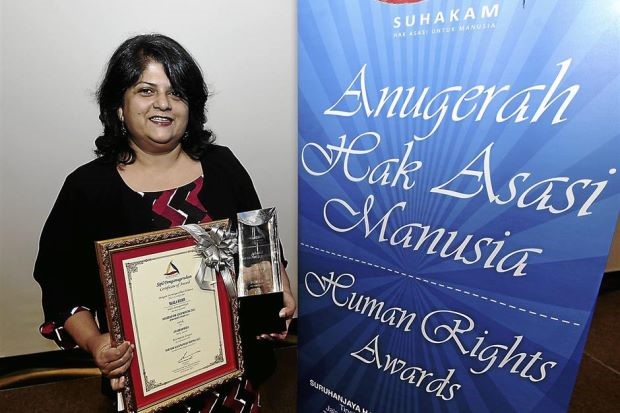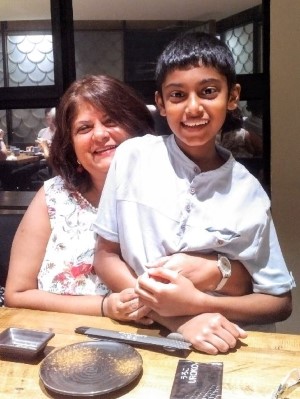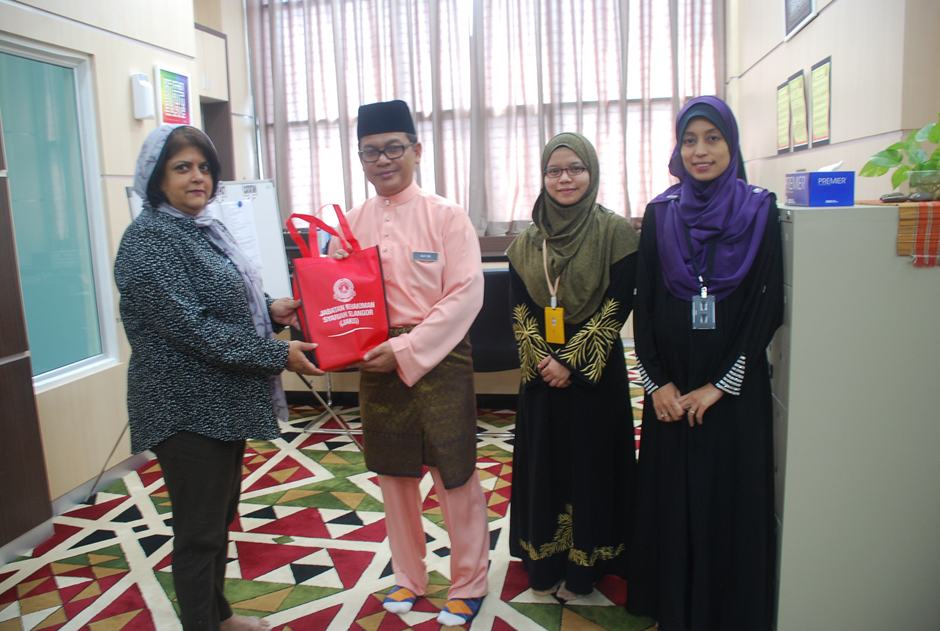01 September 2018

Shaila Koshy
Freelance Investigative Journalist
Bachelor of Applied Science in Property Resource Management
Shaila Koshy’s love of information – the dissemination, analysis and presentation of the knowledge – has always been vital to her career path as a reporter. With almost three decades as a human rights investigative journalist under her belt, this love has served her well, tirelessly raising awareness on various human rights matters over the years, including the rights of indigenous people, migrants, women and children.
Shaila started at The Star, Malaysia’s premier tabloid-format newspaper and largest English masthead in the country, in 1989 three years after graduating from one of UniSA’s precursor institutions, South Australian Institute of Technology (SAIT).
At SAIT Shaila worked towards a Bachelor Degree in Applied Science in Property Resource Management in the Playford Building on North Terrace and Frome Road at the City West Campus that currently houses UniSA’s Health Science students. When asked how her degree led to her current career as a journalist, Shaila insists that it was actually the other way around.
With her parents contributing to her Australian education out of their hard-earned savings, Shaila compromised after her father expressed concerns about the working hours and tough conditions for reporters – in particular female reporters.

“I wanted to study journalism in 1983 but my father said no because he didn't think the work hours were suitable for a girl. His brother was a journalist and we hardly saw him,” she says.
“I knew of good journalists who didn't attend journalism school, and hoped I could do the same.
“So I went through the SATAC Guide and felt that the process of examining a property or researching a property development project before coming up with a report for the client sounded the same as working on a news story or feature.
“Both fields involved getting information, analysing it and presenting it. The only difference was the subject matter.”
This fighting spirit and urge to rise above such stereotypes carried her through her degree – and eventual career explaining that she loved her three years at SAIT as she has put into practice most of what she learned in Adelaide.
“The Constitutional and Land Law subjects introduced me to Aboriginal land rights. It got me thinking about our own indigenous people and how government policy for their development often didn't take their culture into consideration,” she says.
“I remember several of my fellow students did not appreciate the Property Resource Analysis course but it helped me devise and analyse surveys of the newspaper's readers on several issues.”
When she returned home to Malaysia, the country was in a recession. So she took a job teaching English and then worked as a valuer for one year before she became a journalist for a national newspaper, thinking about ending up as a business reporter.
But soon Shaila found her niche and her passion took over during the 29 years at The Star as she focussed largely on human rights; legal aspect of issues, law-making, the criminal justice system in the civil and Syariah (Sharia) courts and the judiciary.
Throughout her time there, Shaila showed a talent for navigating the murky waters of Malaysian politics and was led by her strong moral compass.
“When I first started, I was told that several members of government didn't like to read about ‘human rights’, that they didn't apply to us because they were a western concept,” she says.
“So I would write about 'fundamental liberties' and 'constitutional guarantees' instead because very few Special Branch personnel checking the news reports would know what those words meant.
“It's just a question of justice. There are many marginalised groups who don't even know they have rights.”

It hasn’t always been smooth sailing though she explains.
“I understand the need for national security, but I do not appreciate the need for secrecy in government when there is no need for it. That was always fair game for me and I managed to get away with disclosing such ‘secrets’.”
“Only once was I interrogated by the police under the Official Secrets Act. They were more interested in getting the person who gave me the report than in the newspaper publishing the information.
“I refused and they went away.”
Her tireless work was rewarded in 2013 when the Human Rights Commission of Malaysia (Suhakam) named her recipient of the Suhakam Human Rights Award 2013 in recognition of her reports on issues, including the Suhakam National Inquiry into the Land Rights of Indigenous People, detention of children, prisoner’s rights and the people’s rights on judicial review.
“It was an honour, but I am embarrassed by such things, so I told them that as far as I was concerned I was only writing about human rights violations and how the government and society need to address them,” she says.
“The ones who should be getting such awards were the human rights activists themselves. The chairman and his fellow commissioners laughed.”
Looking back on her career, Shaila cites many highlights including covering a Brisbane criminal trial involving the chief minister of a Malaysian state in the late 1990s and watching the famous Geoffrey Robertson QC in action, but is currently embarking on a freelance journalism career.
This is not an excuse to rest on her laurels though.
“The old Opposition is now the new government in power. It's time to watch them and be a thorn in their side,” she says.
“Maybe I'll register a business and call it ‘Like a Dog with a Bone’.”




